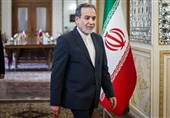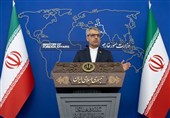UK Urged to Halt Arms Sales to Israel Following UN Court's Ruling
TEHRAN (Tasnim) – The UK should cease arming Israel to adhere to the UN's advisory opinion against aiding the occupation of Palestinian territories, according to a lawyer who represented Palestine, the Guardian reported.
The International Court of Justice (ICJ) declared this month that Israel’s settlement policies and occupation of Palestinian territories violate international law.
It emphasized that UN member states must not recognize or support the occupation.
The UK faces pressure over arms sales to Israel, particularly during its Gaza offensive in response to the 7 October attacks, which has resulted in nearly 40,000 Palestinian deaths.
Prof. Philippe Sands KC, part of Palestine's legal team at the ICJ, highlighted the ruling's significant implications for the UK.
"The most immediate issue is the obligation in the advisory opinion on the states, which includes the United Kingdom, not to aid or assist in the maintenance of the current situation in the occupied territories of the West Bank, including Jerusalem," said Sands.
"This legal obligation precludes sales of military material which could be used directly or indirectly to assist Israel in maintaining its unlawful occupation of the occupied Palestinian territories."
Foreign Secretary David Lammy stated that officials are conducting a "comprehensive review of Israel’s compliance with international humanitarian law" and hinted at potential restrictions on arms sales to Israel.
Sands noted that although the ICJ's advisory opinion is not directly binding, it is recognized as an authoritative legal statement that the UN and its agencies will adhere to.
The ruling also impacts the legality of imports from Israeli settlements to the UK and other countries.
"Anything that is produced in the occupied territories, such as food, or that is sold there over the internet, is in principle subject to the international prohibition, if it can be said to aid or assist in the maintenance of the unlawful occupation," he explained.
Sands added that ICJ opinions typically lead to a UN general assembly vote within two to three months on whether to adopt them, with the UK's stance being crucial.
The UK had opposed the ICJ referral and submitted a 43-page legal opinion against it.
"How does the UK vote on that (the opinion)?" asked Sands.
"Will it vote against, or will it abstain? If the government is true to its word on respecting international law, given the nature and detail of the ICJ advisory opinion, you would expect them, at the very least, not to vote against. This could well be an early issue in relations with the United States, which will almost certainly vote against, despite the fact that the US judge was part of the large majority."
During the ICJ hearing in February, Sands argued for the Palestinian right to self-determination.
The court's advisory opinion referenced "the realization of the right of the Palestinian people to self-determination, including its right to an independent and sovereign state."
Labour has pledged to recognize a Palestinian state without a set timeframe, aiming for a renewed peace process leading to a two-state solution.
Sands remarked, "Ultimately, the recognition of a state is a political matter, not a legal obligation, so there is a discretionary element. Nevertheless, the ICJ judges have clearly stated that self-determination means that the Palestinian people 'have the right to an independent and sovereign state.' About 150 states (out of nearly 200) have recognized Palestine as a state, the UK is part of a small and diminishing group that refuses to do so."
Following the ICJ advisory opinion, the UK Foreign, Commonwealth, and Development Office stated on 19 July that it was "considering it carefully before responding" and "respects the independence of the ICJ."





